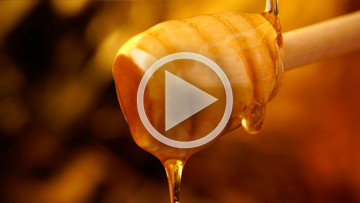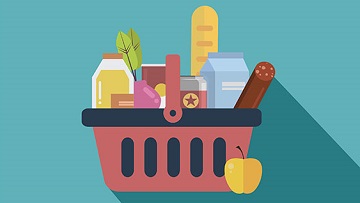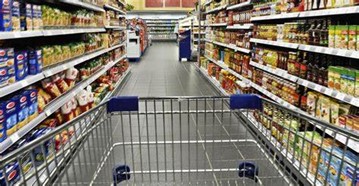On this page
- What the CFIA does to combat food fraud
- Taking action when non-compliance is found
- Working with stakeholders and partners
- Everyone has a role to play
- Reports
- Latest updates
- Videos, podcasts and articles
What the CFIA does to combat food fraud
Food fraud can occur at any step in the food processing continuum (raw product, processing, packaging, labelling, retail, etc.) with both imported and domestic food products. The Canadian Food Inspection Agency (CFIA) is committed to working with the food industry to find ways to address this growing concern.
The CFIA protects consumers from food fraud by:
- conducting inspections at different levels of the food trade, including domestic manufacturers and importers
- analyzing food samples and verifying that the composition complies with regulations
- identifying and targeting areas of highest risk
- investigating complaints, including potential misrepresentation on food labels, restaurant menus or in advertisements
- working with:
- industry to encourage best practices such as supply chain controls
- Health Canada to address health and safety risks involved in food misrepresentation
- other federal government departments, provincial governments and other countries when food fraud is identified across jurisdictions
- leveraging technology and innovation to help predict fraudulent practices
- promoting industry compliance and consumer awareness
- providing food labelling tools and resources, including the industry labelling tool and consumer labelling tool
- taking action when non-compliance is found
When food products are clearly misrepresented and not compliant with the regulatory requirements, the CFIA will take appropriate regulatory or enforcement actions. In some cases, the agency will recommend prosecution. This will depend on the severity of the violation, the history of compliance of the regulated party, and the intent of the act.
Taking action when non-compliance is found
When food products are misrepresented and not compliant with the regulatory requirements, the CFIA takes appropriate actions to protect consumers. This includes control measures and enforcement actions.
Applying control measures
Control measures are applied to prevent food that presents an immediate risk to human health from being in the Canadian marketplace. This can include product removal, seizure, detention, destruction or relabelling. Traceability requirements are in place so that unsafe foods can quickly be removed from the market through recalls, protecting the health of consumers.
Taking enforcement actions
Enforcement actions are applied to compel a regulated party back into compliance. This can include a written notice, an administrative monetary penalty, recommendation for prosecution, or suspension of their licence.
These actions are considered on a case-by-case basis. They take into account the harm caused by the non-compliance, the compliance history of the regulated party and whether there is negligence or intent to violate federal requirements.
The CFIA publishes the following compliance and enforcement information:
- Suspensions and cancellations of food business licences
- Notification of charges laid
- Prosecution bulletins
- Administrative monetary penalties
Working with stakeholders and partners
Addressing the issue of food fraud requires a collective effort and engagement by industry, government departments, the scientific community, consumers, academia, non-governmental organizations, and international partners.
The Government of Canada is committed to working with domestic and international stakeholders and partners to discover better ways to address food fraud. Examples of the work Canada is involved with include:
- participating in discussions with the food industry and academia to better understand food fraud in Canada and identify solutions
- working with international partners to share information to help prevent, detect and deter food fraud
- partnering with academia to identify misrepresentation, discuss better ways to test for substitutions, and share information and scientific research
- looking at innovative solutions to combat food fraud, specifically new technologies
- raising awareness of food fraud and encouraging others to share their perspectives on the issue
Everyone has a role to play
- Industry's role in combatting food fraud
- How consumers are impacted by food fraud and what they can do to combat it
Reports
These reports provide an overview of the food fraud initiative activities performed by the CFIA, with a focus on the results of surveillance. The CFIA continually improves its approach with targeted sampling and testing of higher-risk areas. This maximizes impact and increases the likelihood of detecting food fraud, meaning these results do not reflect what you would find in the overall Canadian marketplace and cannot be compared from year to year to identify trends.
- Food fraud annual report (2022 to 2023)
- Food fraud annual report (2021 to 2022)
- Food fraud annual report (2020 to 2021)
- Fish species substitution report (2019 to 2020)
- Honey authenticity report (2019 to 2020)
- Honey authenticity report (2018 to 2019)
Latest updates
Government of Canada prevents more than 100,000 kg of misrepresented food from being sold in Canada
2023-03-02 | News release
Government of Canada continues to tackle food fraud
2022-05-12 | News release
Food misrepresentation
2022-05-12 | Notice to industry
Government of Canada takes action on fish fraud
2021-03-24 | News release
Fish substitution in the Canadian marketplace
2021-03-24 | Notice to industry
Government of Canada protects Canadians against food fraud in honey and other products
2020-12-07 | News release
Government of Canada prevents nearly 12,800 kg of adulterated honey from entering the Canadian market
2019-07-09 | News release
Authenticity of honey in the Canadian marketplace
2019-07-09 | Notice to industry
Videos, podcasts and articles

Video: Putting honey to the test
Honey is oh so sweet. But if sugars are added and not declared on the label, that is a form of food fraud.

Video: Tackling food fraud
Here's how the CFIA and the public can work together to combat food fraud.

Podcast: Shedding light on food fraud
Agriculture and Agri-Food Canada and the Canadian Food Inspection Agency come together in this special two-part episode on honey fraud in Canada.

Article: Food fraud
CFIA takes food fraud seriously and works to protect consumers against activities such as food adulteration, substitution and misrepresentation.


